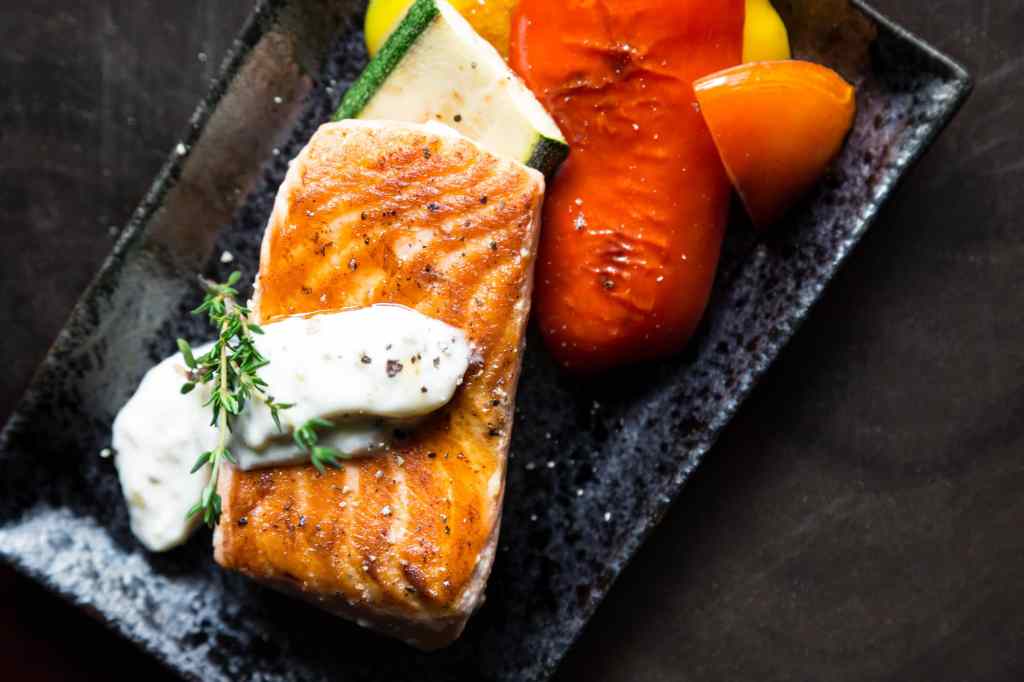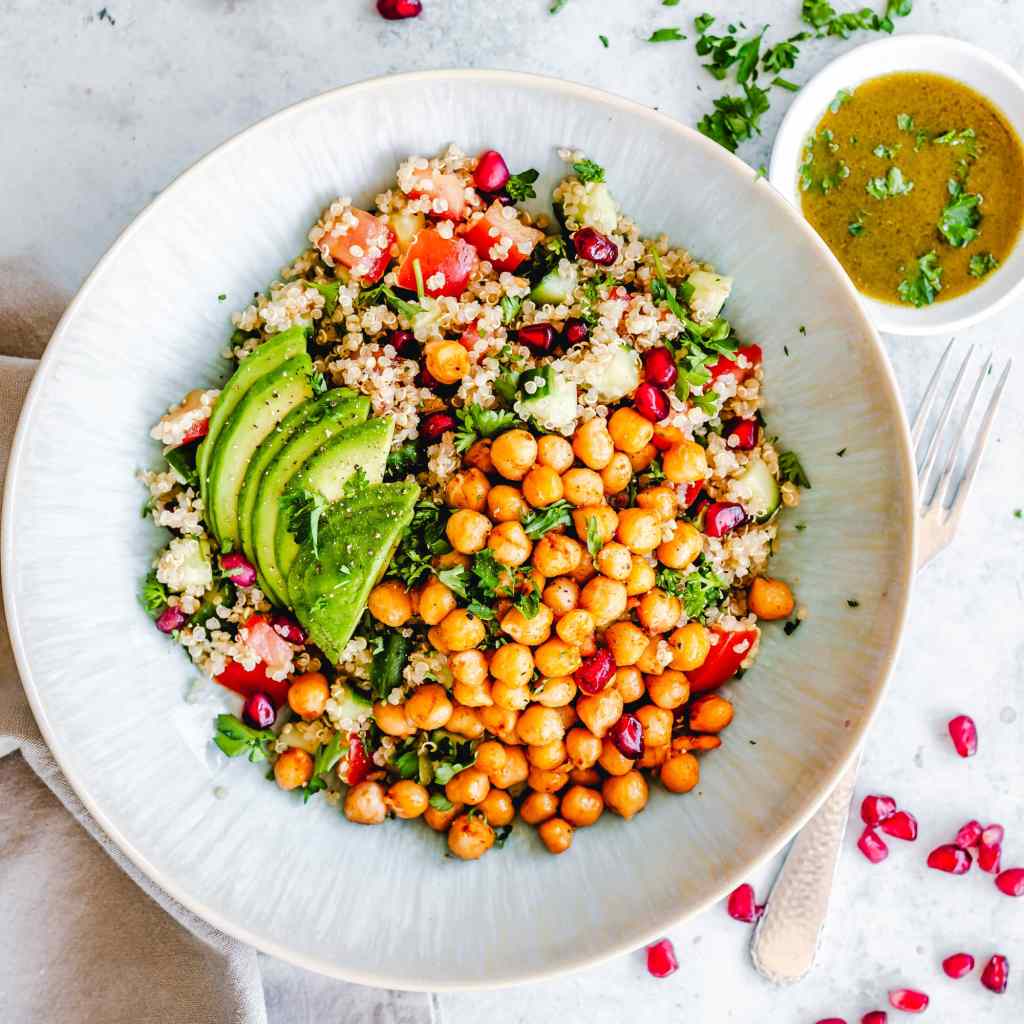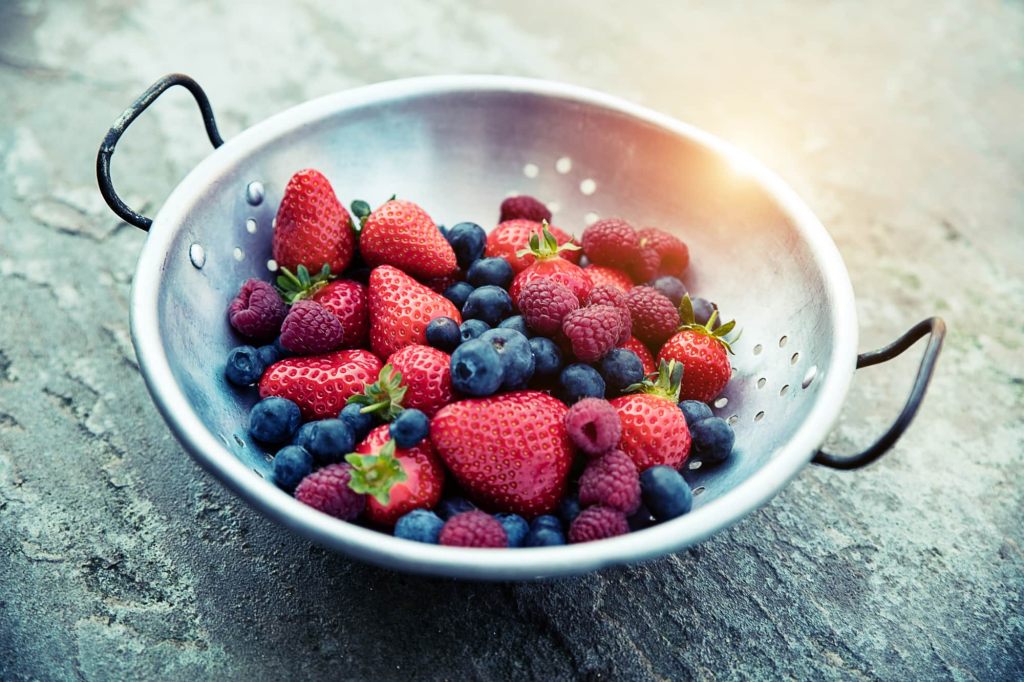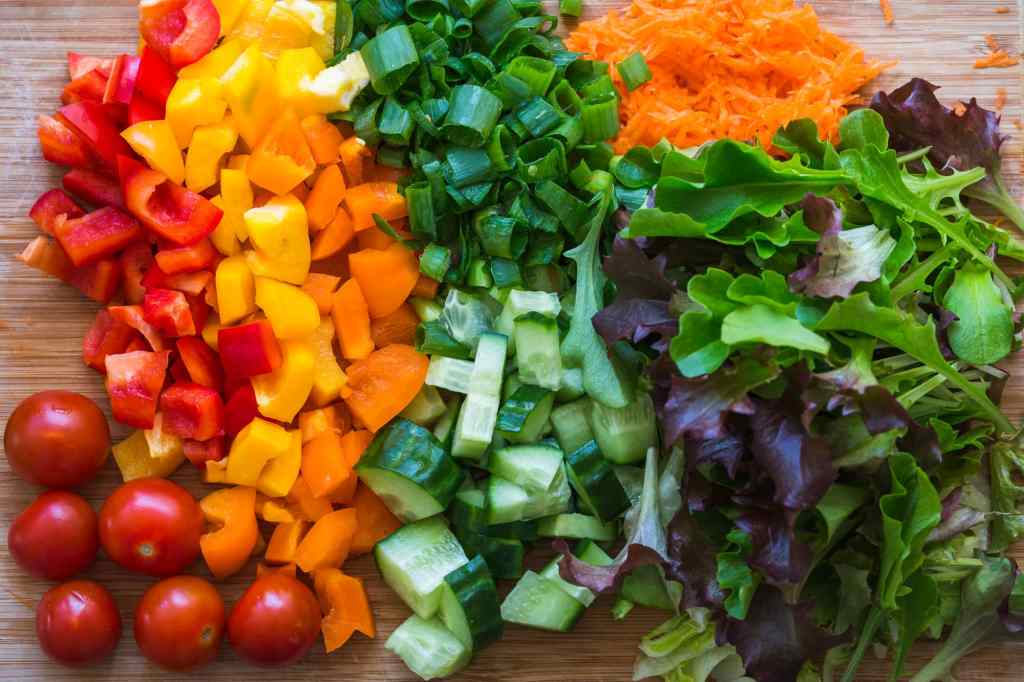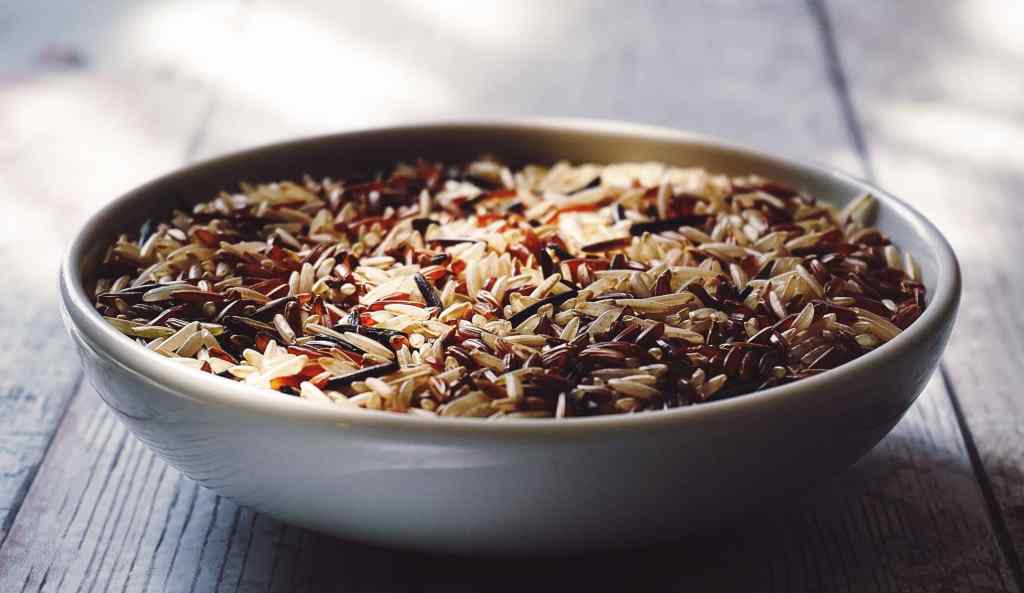
- POPSUGAR Australia
- Fitness
- Thinking of Going Pescatarian? These 5 Food Groups Are Essential, According to a Dietitian
Thinking of Going Pescatarian? These 5 Food Groups Are Essential, According to a Dietitian

There’s always some new diet fighting for the spotlight, but with its Mediterranean-style roots and emphasis on plant-based foods, the pescatarian diet is likely here to stay. Still not sure what it is exactly? Pescatarians follow what’s essentially a vegetarian diet – focused on vegetables, legumes, fruits, whole grains, nuts, and seeds – but with the addition of fish and seafood for a bit of animal-based protein.
The pescatarian diet is high in fiber, vitamins, antioxidants, and healthy fats. According to Brigitte Zeitlin, RD, MPH, owner of BZ Nutrition in New York City, including fish in an otherwise vegetarian diet also adds in vitamin B12, which is only found naturally in animal proteins. Strict vegetarians are frequently B12-deficient.
“B12 deficiency can lead to anemia and fatigue, osteoporosis, macular degeneration, irritability, and anxiety,” Brigitte told POPSUGAR. “Including fish can help prevent all these things and still work to meet your health goals of lowering the risk of heart disease, diabetes, and other chronic illnesses. The pescatarian diet can also help you maintain a healthy weight, since it focuses on fresh produce and only includes the leanest sources of animal protein: fish and seafood.” Keep reading to find out exactly how to fill your plate.
Seafood
“Fish and shellfish are great sources of omega-3 fatty acids that help to fight inflammation, keep your skin healthy, and boost heart health,” Brigitte told POPSUGAR. This makes them one of the most beneficial pillars of a pescatarian diet. Choose lower-mercury options like salmon, light tuna, cod, scallops, shrimp, lobster, and black sea bass, all of which offer vitamin B12 in addition to heart-healthy fats. Aim to have two to three servings of fish or shellfish each week.
Plant-Based Proteins
You can’t eat seafood at every meal or even every day, so plant-based proteins are an essential part of a pescatarian diet. “Making sure to have enough protein throughout the day is usually the trickiest part of any [plant-based diet],” Brigitte said. And this is one nutrient you don’t want to skimp on. “Protein helps boost brain cognition, keeping you feeling focused and alert throughout the day, and also builds strong muscles and bones,” she continued.
To make sure you get your fill, reach for nuts like almonds, pistachios, and walnuts; nut butters; hemp seeds; and legumes like lentils, beans, peas, and chickpeas.
Fruits
While many fruits can be part of a healthy, balanced diet (pescatarian or not), Brigitte recommended berries specifically. Strawberries, blueberries, raspberries, and blackberries are loaded with antioxidants and add some delicious sweetness to your meals, she explained. Strawberries in particular are an excellent source of vitamin C, which helps to boost your immunity and increase collagen production, keeping your skin plump and healthy. Brigitte suggested having half a cup of berries in the mornings with breakfast or after dinner as dessert.
Vegetables
Naturally, vegetables should be a staple in any plant-based diet. Brigitte explained that veggies offer up a variety of vitamins, minerals, antioxidants, and fiber, which can help lower your risk of chronic illnesses, fight bloat, and more.
“Aim to have two to three cups of veggies at lunch and dinner to help you stay satiated,” she told POPSUGAR. “Have something green at each meal, like chard, romaine [lettuce], kale, spinach, broccoli, green beans, or asparagus, and then mix in the other colors – reds, oranges, yellows, blues, and white – on top, such as cauliflower, tomatoes, carrots, bell peppers, eggplant, zucchini, and squash.”


